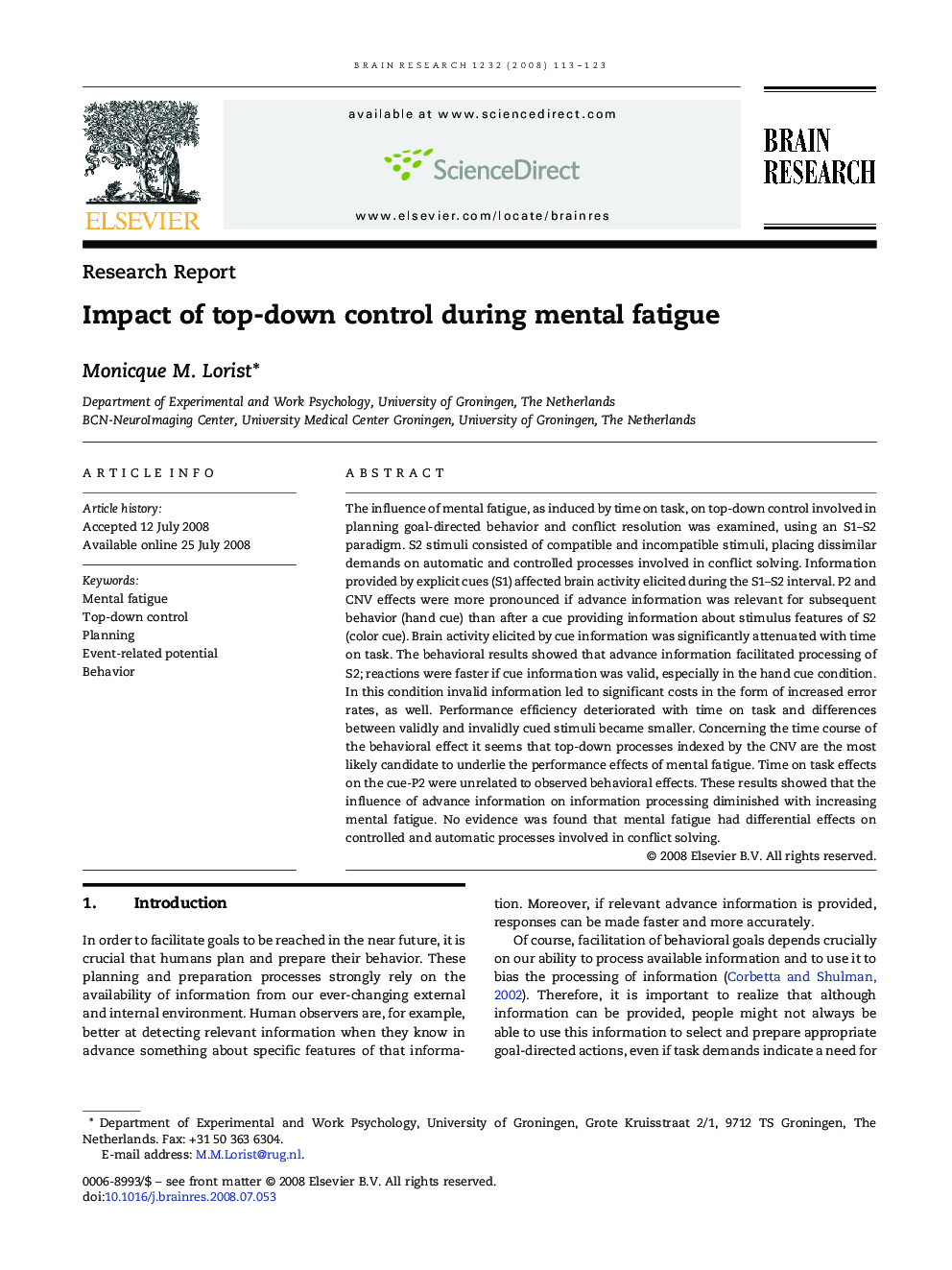| Article ID | Journal | Published Year | Pages | File Type |
|---|---|---|---|---|
| 4329236 | Brain Research | 2008 | 11 Pages |
The influence of mental fatigue, as induced by time on task, on top-down control involved in planning goal-directed behavior and conflict resolution was examined, using an S1–S2 paradigm. S2 stimuli consisted of compatible and incompatible stimuli, placing dissimilar demands on automatic and controlled processes involved in conflict solving. Information provided by explicit cues (S1) affected brain activity elicited during the S1–S2 interval. P2 and CNV effects were more pronounced if advance information was relevant for subsequent behavior (hand cue) than after a cue providing information about stimulus features of S2 (color cue). Brain activity elicited by cue information was significantly attenuated with time on task. The behavioral results showed that advance information facilitated processing of S2; reactions were faster if cue information was valid, especially in the hand cue condition. In this condition invalid information led to significant costs in the form of increased error rates, as well. Performance efficiency deteriorated with time on task and differences between validly and invalidly cued stimuli became smaller. Concerning the time course of the behavioral effect it seems that top-down processes indexed by the CNV are the most likely candidate to underlie the performance effects of mental fatigue. Time on task effects on the cue-P2 were unrelated to observed behavioral effects. These results showed that the influence of advance information on information processing diminished with increasing mental fatigue. No evidence was found that mental fatigue had differential effects on controlled and automatic processes involved in conflict solving.
